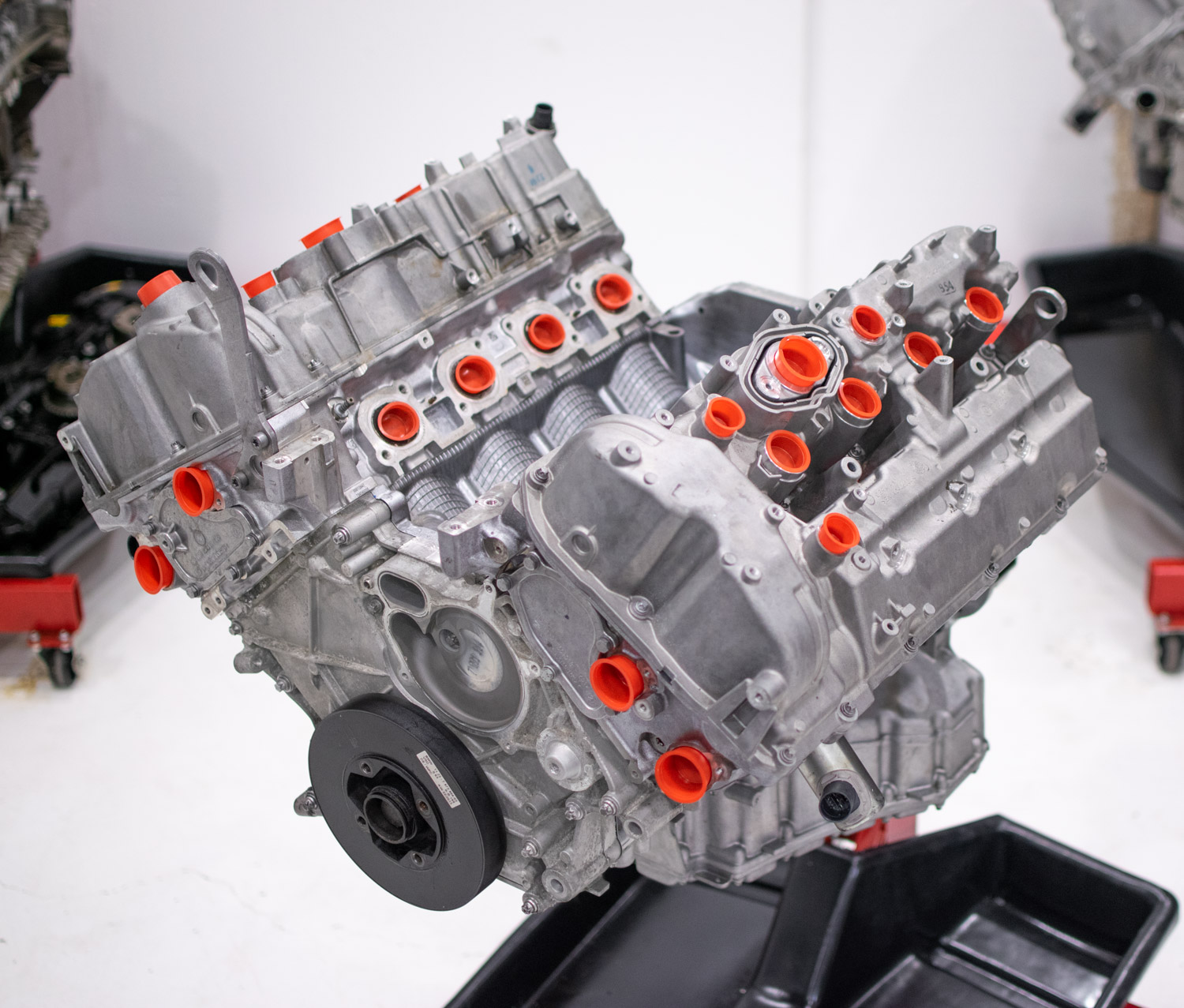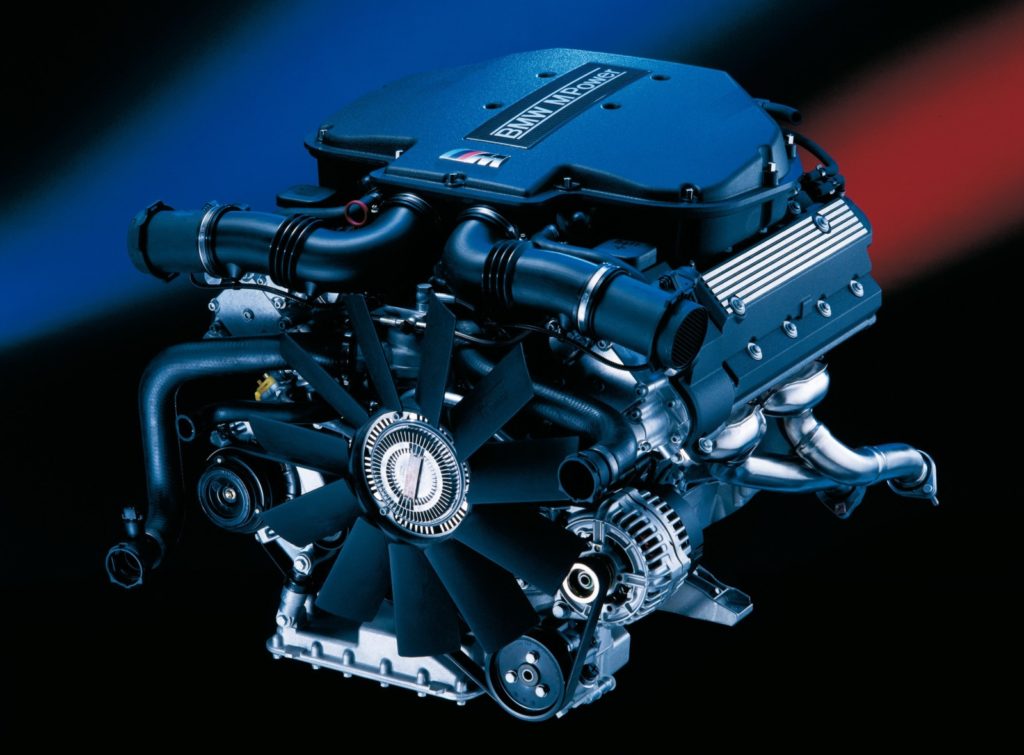The Role of BMW Engine Layout in Getting Exceptional Fuel Performance
The Role of BMW Engine Layout in Getting Exceptional Fuel Performance
Blog Article
Unveiling the Intricacies of Next-Generation Power Units: a Deep Dive Into Advanced Engine Designs and Advancements
As we stand on the precipice of a new age in transportation, the details of next-generation engine layouts bid us to explore the sophisticated technologies and advancements that promise to redefine the driving experience. Delving much deeper right into the worlds of emission control, intelligent engine management systems, and the horizon of power unit advancement, we find ourselves on the cusp of a change that promises to reshape the landscape of mobility as we know it.
Development of Engine Materials

The shift in the direction of progressed engine materials has actually also enabled engineers to create engines with greater power results while keeping gas performance standards. The usage of light-weight products lowers the total weight of the engine, leading to improved fuel economy and lower emissions. Additionally, developments in products innovation have actually enabled for much better thermal administration within engines, causing boosted integrity and durability.
Turbocharging and Supercharging Technologies
Exactly How do Turbocharging and Supercharging Technologies transform engine performance and performance in modern-day cars? Turbo charging and turbocharging are innovations that considerably improve engine efficiency by boosting the amount of air consumption into the burning chamber. Turbocharging achieves this by utilizing a generator driven by exhaust gases to pressurize the intake air, while turbo charging uses a belt- or chain-driven compressor to attain the same impact.
These technologies make it possible for smaller, extra fuel-efficient engines to produce power equal to larger ones, called downsizing. Forcibly even more air into the cyndrical tubes, turbo charging and turbocharging boost combustion performance, resulting in raised horse power and torque output without a substantial increase in engine size. This brings about much better acceleration, towing capability, and total driving performance.
Furthermore, turbocharging and turbo charging add to enhanced gas efficiency by enabling the usage of smaller sized engines that take in less fuel under typical driving problems - bmw engine. This mix of enhanced efficiency and efficiency has made turbocharging and turbo charging indispensable components of numerous modern engine layouts
Emission Control and Environmental Effect
With boosting international concerns concerning air quality and environmental sustainability, the application of discharge control modern technologies in vehicles plays a critical role in reducing harmful contaminants released into the atmosphere. Modern vehicles are equipped with sophisticated emission control systems that help minimize the environmental impact of automobile operations. Catalytic converters, for instance, are developed to convert harmful gases such as carbon monoxide gas, nitrogen oxides, and hydrocarbons into less hazardous substances like carbon dioxide and water vapor.
Furthermore, improvements in engine modern technology, such as the assimilation of exhaust gas recirculation systems and discerning catalytic reduction, have considerably added to decreasing exhausts. These innovations operate in tandem to optimize burning performance and decrease the release of harmful toxins into the air. Additionally, the advancement of hybrid and electrical lorries stands for a vital step towards decreasing the overall ecological footprint of the transportation field.
Intelligent Engine Management Systems

Additionally, these systems make it possible for automobiles to satisfy stringent emissions criteria without endangering performance, supplying a more eco-friendly driving experience. The combination of expert system and equipment discovering abilities in engine monitoring systems continues to press the boundaries of what is possible, bring about additional improvements in effectiveness, integrity, and overall automobile efficiency. bmw engine. As automobile modern technology developments, smart engine management systems will play a critical role fit the future of transportation towards an extra effective and lasting direction
Future Trends in Power System Development
As smart engine management systems lead the way for boosted control and optimization in modern cars, future patterns in power device growth are poised to redefine the landscape of automotive propulsion innovations. Among the vital fads driving innovation in power unit advancement is the shift towards electrification. With a boosting emphasis on sustainability and lowering carbon exhausts, crossbreed and electrical powertrains are coming to be more prevalent in the automotive industry. These alternative power sources provide improved efficiency and performance while aligning with stringent environmental regulations.
An additional considerable pattern is the integration of innovative products and manufacturing techniques. Light-weight materials such as carbon fiber and aluminum are being made use of to decrease overall lorry weight, improving fuel performance and efficiency. Additionally, advancements in 3D printing and additive production are allowing the production of intricate engine components with greater check out here precision and resilience.
Furthermore, expert system and artificial intelligence are playing a vital role in maximizing power system efficiency. These innovations allow for real-time tracking and adaptive control, bring about much more dependable and reliable power basics shipment. On the whole, future trends in power device development are tailored towards efficiency, sustainability, and performance, driving the vehicle market towards a brand-new era of propulsion innovations.

Final Thought
In conclusion, the innovations in engine materials, turbocharging, exhaust control, and intelligent administration systems have led the way for next-generation power units. These technologies have not only enhanced efficiency and efficiency however additionally decreased ecological impact. As innovation proceeds to evolve, future patterns in power device development are likely to concentrate on further enhancing sustainability and enhancing power result. The detailed designs and developments in modern-day engines display the ongoing development of auto technology.
Exploring the modern improvements in engine products has actually been crucial in boosting the efficiency and performance of modern-day engines. Over the years, the advancement of engine products has actually played a crucial role in pressing the borders of what engines can attain.The change in the direction of progressed engine products has likewise allowed engineers to develop engines with higher power outputs while preserving fuel efficiency criteria.The execution of smart engine administration systems in contemporary automobiles has transformed the method engines are controlled and optimized for efficiency and performance. By accumulating information in real-time and assessing it with advanced algorithms, intelligent engine monitoring systems can adjust to driving styles, environmental elements, and engine health to make best use of power outcome while decreasing fuel consumption and exhausts.
Report this page